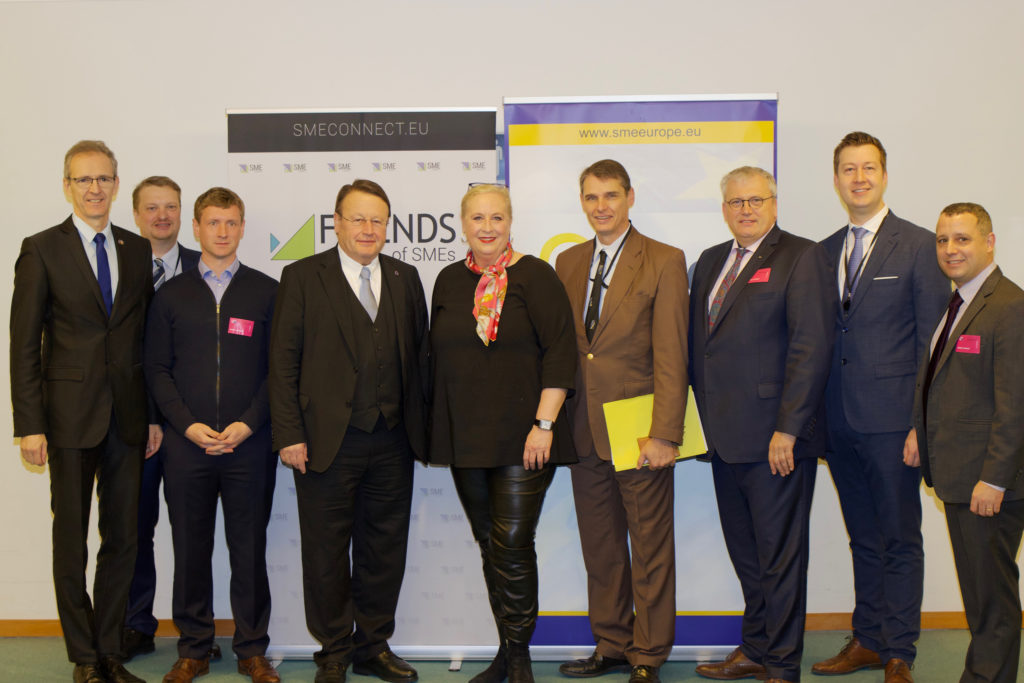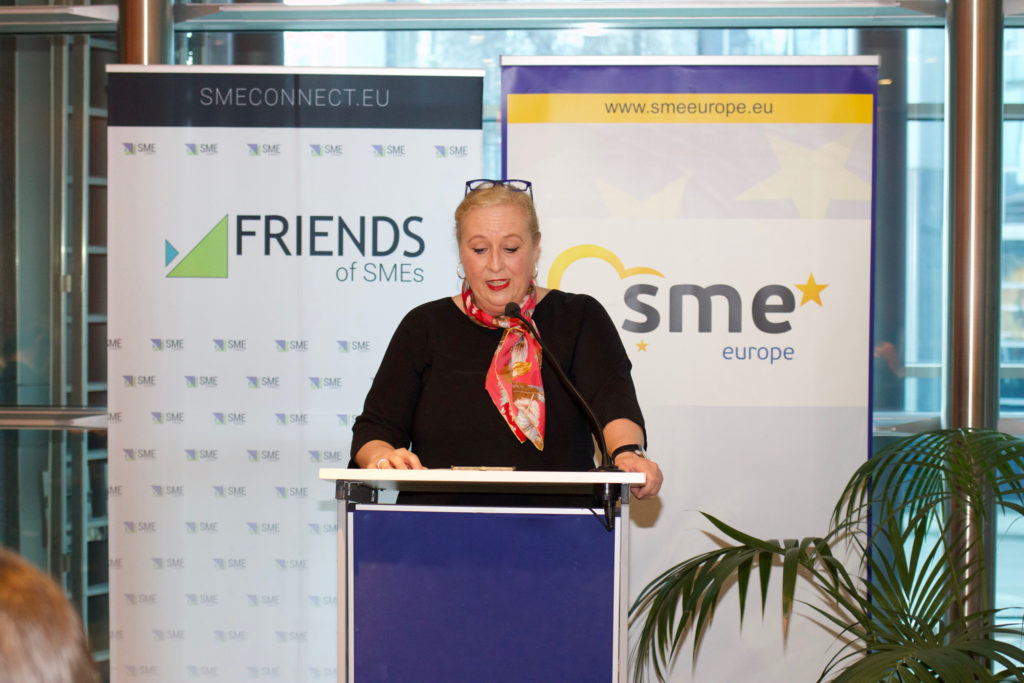“Online Impact of EU’s Digital Taxation Proposal on European SMEs”

#DIGITAX
On February 19th SME Europe, in cooperation with SME Connect and the European Taxpayers Association, hosted a Working Breakfast on “Online Impact of EU’s Digital Taxation Proposal on European SMEs”. The event took place under the Chatham House Rules.
The Breakfast was hosted by Claudia Schmidt MEP(Member of the Committee on Budgetary Control and Board Member of SME Connect). She opened the event by welcoming all participants and underlining the importance of a fair tax environment for SMEs, to secure growth and prosperity. Other speakers at the Working Breakfast were Ivan Stefanec MEP(Member of the Committee on Internal Market and Consumer Protection and President of SME Europe), Stefan Gehrold MEP(Member of the Committee on Monetary and Economic Affairs), Dr. Paul Rübig MEP(Committee on Industry, Research and Energy and President of SME Connect), Matthias Bauer(Senior Economist at the European Centre for International Political Economy), Michael Jäger(Secretary General of the Taxpayers Association of Europe and CEO of the European Economic Senate), Lawrence D. Norton(US Treasury Representative for Europe), Christian Borggreen(Vice President and Head of Office at CCIA Europe) and Ralph Brügelmann(Senior Manager Tax and Finance Policy at Bundesverband der Deutschen Industrie e.V.). The Open Discussion was moderated by Dr. Horst Heitz, Executive Director of the SME Europe.
The speakers mentioned the already similar tax burden between digital and non-digital enterprises; economic concerns on taxing revenue, net profits and that with ATAD I&II the EU already does have existing cross-border systems to report international unlawful transfers of profits.

SMEs would also be affected, since the cost of higher taxes would be moved down the supply chain from large Enterprises to SMEs and finally to the consumer. Furthermore, they will be taxed higher, as soon as they become a large enterprise. Which might result in a restrictive business approach and a less innovative environment the European digital sector. Instead, there has been a call for international solution, primarily to reform the OECD framework.









